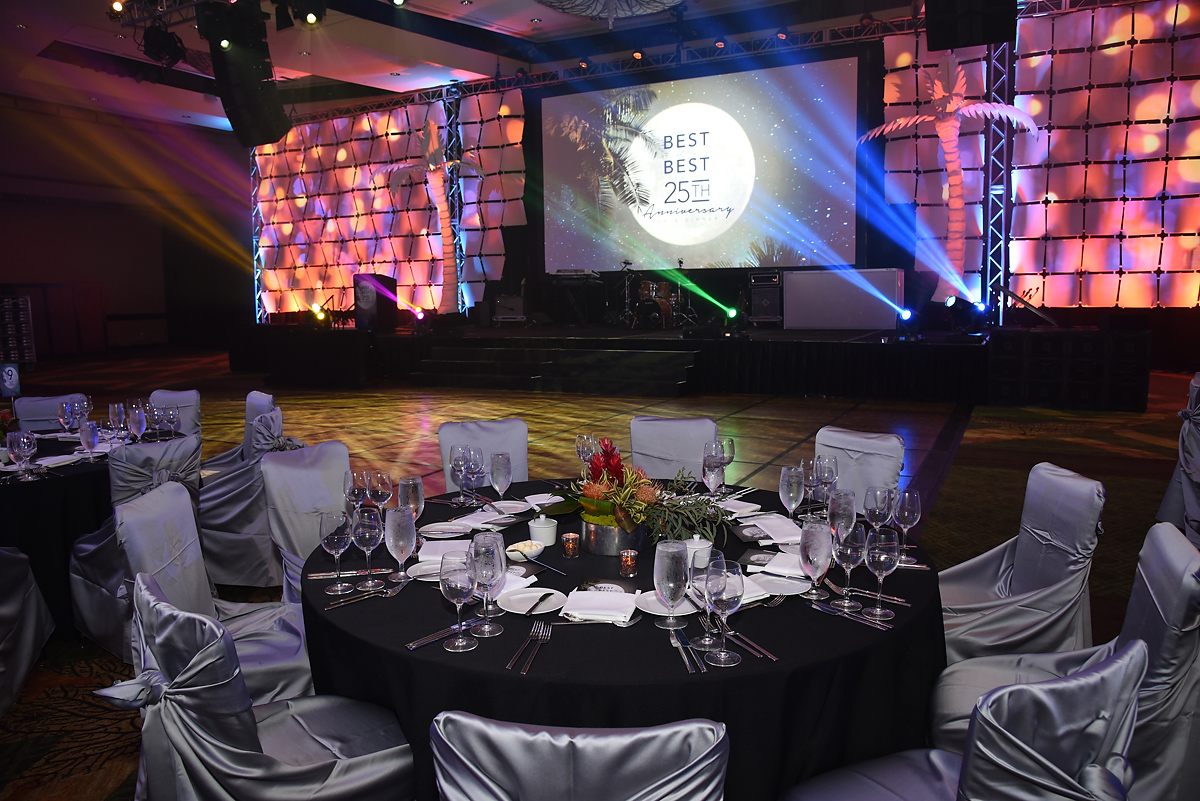Behind the Scenes: The Magic of Successful Event Productions
Wiki Article
Recognizing Exactly How Events Manufacturing Works: A Comprehensive Overview of the Refine
The complexities of occasion manufacturing need a systematic approach that integrates numerous stages, each playing a vital duty in the total success of an occasion. Recognizing the subtleties of budgeting, source allocation, and on-site management is important for any kind of specialist in this area.First Preparation and Principle Growth
Reliable first preparation and principle growth work as the structure for effective occasions manufacturing. This stage includes defining the event's purpose, target audience, and desired end results. A clear vision is essential; it overviews all succeeding choices and assists line up the team's efforts towards an usual objective.Throughout this phase, brainstorming sessions can be indispensable. Engaging stakeholders, including clients, enrollers, and possible guests, fosters a collaborative environment that creates ingenious ideas. In addition, thorough market study need to be carried out to understand trends, choices, and prospective challenges.
Once the principle is developed, it is important to create a detailed occasion summary. This overview should include the event's motif, style, and key activities. Developing a timeline is similarly important, as it aids to handle tasks and target dates efficiently.
Budgeting and Source Allowance
With a solid idea in place, interest needs to turn to budgeting and source allotment, which are important parts in performing the occasion effectively. A well-defined budget plan acts as a roadmap, outlining all anticipated costs and readily available sources. It begins with identifying taken care of and variable expenditures, including venue rental, food catering, staffing, advertising, and modern technology. Each group must be diligently computed to stay clear of overspending and to ensure that funds are allocated properly.Source appropriation entails appointing both economic and human sources to numerous jobs and parts of the occasion. Prioritization is crucial; crucial components need to obtain ample financing while much less vital elements may need a more conservative method. Additionally, contingency planning is essential-- assigning a part of the allocate unforeseen costs can minimize financial risks.
In addition, effective communication amongst staff member relating to budget plan restrictions fosters collaboration and innovation. This advertises the liable use resources and motivates innovative solutions to remain within budget. Ultimately, a calculated method to budgeting and source allowance prepares for an effective event, making it possible for coordinators to concentrate on supplying a memorable experience for participants while preserving economic integrity.
Logistics and Control
Navigating the complexities of logistics and control is necessary for the seamless implementation of any type of event. This stage involves thorough preparation and company to guarantee that all parts operate in consistency. Crucial element consist of venue choice, transportation plans, and the scheduling of different activities.Efficient logistics begins with a detailed analysis of the venue's limitations and abilities. This includes recognizing the layout, gain access to points, and offered sources. Once the place is verified, transportation logistics need to be established, encompassing the motion of guests, equipment, and materials. Collaborating these components needs partnership with suppliers, distributors, and transportation services to ensure check it out timely shipments and pickups.
One more critical aspect is the development of an extensive timeline that describes all logistical elements leading up to the event. This timeline acts as a roadmap, detailing key turning points and due dates for jobs such as devices setup, providing solutions, and audiovisual installations. Regular communication with all stakeholders is important to deal with any kind of potential concerns proactively.
Implementation and On-Site Management
Successful execution and on-site management are vital for transforming precise plans right into fact during an event. This stage entails the smooth control of numerous elements, guaranteeing that every detail lines up with the well-known vision. On-site managers play a critical role, acting as the central factor of interaction among vendors, staff, and stakeholders. Their capability to make real-time choices can considerably affect the event's success.A distinct schedule is necessary, working as a roadmap for all tasks. Event managers have to guarantee that arrangement occurs on schedule, adhering to timelines for audio checks, catering distributions, and more information visitor arrivals. Effective problem-solving skills are also crucial; unanticipated challenges can emerge, needing quick reasoning and adaptability to preserve the occasion's circulation.
This degree of involvement not just boosts the total experience however likewise shows the professionalism and trust of the occasion group. Inevitably, effective implementation and on-site monitoring hinge on detailed preparation, effective interaction, and a dedication to supplying an exceptional occasion for all entailed.

Post-Event Examination and Feedback
The conclusion of any occasion lies not just in its execution however also in the complete assessment that adheres to. Post-event assessment is crucial for figuring out the overall success of the event and recognizing areas for renovation. This process typically includes event feedback from numerous stakeholders, consisting of guests, suppliers, and employee, to acquire a comprehensive point of view on their experiences.To structure the analysis, event organizers commonly make use of meetings and studies, concentrating on key efficiency indicators such as guest satisfaction, logistical efficiency, and budget plan adherence. Examining this information permits organizers to assess whether the event satisfied its goals and to comprehend the staminas and weaknesses of the execution.
By methodically attending to feedback and implementing adjustments, event specialists can boost their techniques, ultimately leading to even more impactful and successful occasions. In conclusion, post-event analysis is a crucial step in the occasion production procedure that makes sure ongoing development and excellence in future endeavors (Event Productions).
Verdict

The ins and outs of event manufacturing demand a systematic technique that integrates numerous stages, each playing a crucial duty in the general success of an occasion.With a strong idea in area, interest should transform to budgeting and source allotment, which are crucial components in implementing the event successfully.Source allocation entails assigning both human and economic resources to different jobs and components of the event. Inevitably, a strategic method to budgeting and source appropriation lays the groundwork for an effective occasion, making it possible for organizers to concentrate on providing a remarkable experience for attendees while maintaining economic stability.

Report this wiki page